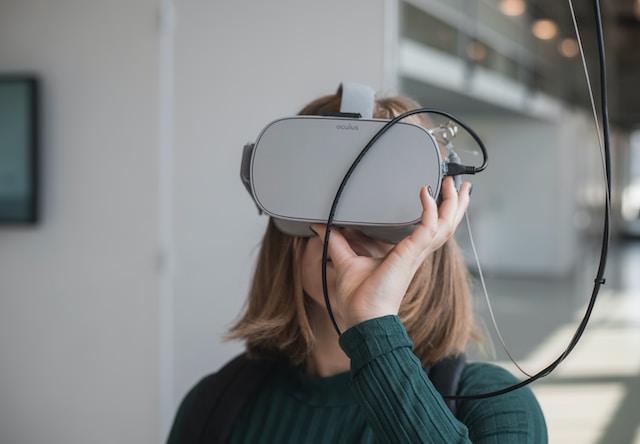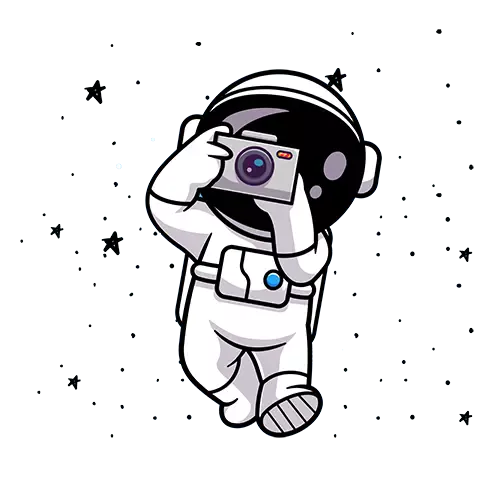
Imagine being able to stand at the top of Mount Everest without leaving your living room, or experiencing a dive into the Mariana Trench while sitting comfortably on your couch. Welcome to the astounding world of Virtual Reality, or VR in short. VR technology has been transforming not only the gaming industry, but also education, healthcare, real estate, and more.
In this article, we will embark on a journey that introduces and explains the concept of VR, and explores its applications in various fields beyond gaming. So, prepare to dive deep...
Exploring the Various Applications of VR Beyond Gaming
Contrary to popular belief, the ingenious virtual reality (VR) technology isn't confined only to gaming. It offers a plethora of substantial applications in various sectors that are equally fascinating and beneficial to mankind.
Perhaps the most apparent application outside gaming is in the realm of healthcare. VR simulations, for instance, have been successful in training surgeons for complicated procedures, without the risk of real patient harm. It has also been utilized in treating phobias with the exposure therapy method, providing patients with a safe environment to confront their fears directly. Furthermore, VR has been used in physical and mental rehabilitation, by creating therapeutic environments that promote healing and recovery.
Meanwhile, in the world of real estate and architecture, VR technology has remodeled the way property walkthroughs are conducted. This innovative tool makes it possible for potential buyers to tour a property virtually, from anywhere in the world, saving both time and money. This doesn't only benefit the buyer but also offers great convenience for agents, architects, and contractors alike.
Adding to the growing list of applications, the travel and tourism industry too has seized the opportunity to enhance their services with VR. Now tourists can virtually visit attractions and destinations before deciding on their trip, thereby creating a personalized and immersive experience.
The impact of VR technology is equally profound in the world of education and training. Innovative learning solutions using VR have opened up new vistas of interactive and immersive learning experiences, leading to improved retention and understanding.
The entertainment industry, a domain beyond just gaming, has begun producing VR movies, concerts, and art installations that offer unique experiences that traditional media could not provide.
Certainly, the scope and possibilities that Virtual Reality technology offers are vast and intense, reaching far beyond the realm of just gaming.
Revolutionizing Industries with VR Technology
When most people think of Virtual Reality (VR), they often associate it with the gaming industry. Yet, VR's potential extends far beyond gaming, revolutionizing many industries with its immersive capabilities.
Ever considered how much more impactful a product demonstration could be if the potential buyer could interact with it in a three-dimensional virtual environment? Or, how much more competent a surgeon might become if they could endlessly repeat complex procedures in a realistic simulation? That's the power of VR, a technology that's transcending the boundaries of what we thought was possible.
Real Estate and Construction
In the real estate sector, VR allows prospective buyers to take immersive tours of properties from the comfort of their homes or real estate agencies. This technology works wonders in saving time, reducing costs, and facilitating decisions in the purchasing process.
When it comes to construction, architects and project managers use VR to visualize the final outcome of their projects. This feature not only aids in identifying potential issues before they occur but also helps in stakeholder communication, providing a realistic view of what to expect upon project completion.
Healthcare and Therapy
The healthcare industry is one sector that's leveraging VR for remarkable advancements. Surgeons now use VR simulations to practice complex surgeries before operating on patients. This minimizes risks and improves the chances of successful outcomes.
Beyond surgeries, VR is also applied in therapy, especially in the treatment of mental health conditions such as PTSD and anxiety disorders. Therapists use VR simulations to recreate scenarios that could help patients face and overcome their fears in a controlled and safe environment.
Education and Skills Training
Education is yet another sector that VR is redefining. Teachers use VR to deliver immersive lessons that vastly improve student engagement, simplifying complex topics and making learning more interactive. Imagine exploring the solar system in a Virtual Reality environment as opposed to looking at flat pictures in a textbook.
Simultaneously, companies are leveraging VR to enhance employee skills training. These immersive training simulations provide a safe space for workers to learn and make mistakes without real-world ramifications – perfect for high-risk industries like mining, construction, or manufacturing.
As we can see, VR technology is far more than a gaming tool. It's a revolutionary technology that's transforming not just one, but many industries, creating exciting opportunities for a more interactive, immersive, and efficient world.
Immersive Training and Education with VR
Virtual Reality (VR) is not just creating remarkable changes in the gaming domain. When it comes to education and training, VR is opening up a completely new world of possibilities. Imagine studying human anatomy by walking through the human body or learning about historical events by time-traveling to the era. Seem impossible? Not with VR!
VR can create an enhanced learning environment that is more engaging than conventional learning methods. Learners can completely immerse themselves in the virtual world. It's a game-changer, turning the monotonous classroom learning into a thrilling adventure.
Immersive VR training offers several advantages, including:
- Increased knowledge retention: Since VR is a visual and interactive medium, it significantly improves the comprehension and retention of the subject matter compared to textual content.
- Reduced training cost: Virtual training eliminates the need for physical resources, which significantly reduces the cost. One VR program can be used for training multiple people across various locations.
- Higher engagement: The immersive and interactive nature of VR keeps the learners more engaged, leading to more effective learning.
- Safe learning environment: For high-risk industries, like aviation or medical, VR provides a safe environment to practice without any real-world consequences.
Additionally, with VR, education is not restricted by geographical boundaries. Students from across the globe can learn from the best educational resources and teachers.
| Applications of VR in Education | Examples |
|---|---|
| Virtual Field Trips | Students can visit historical places, museums, or go on a safari right from their classrooms. |
| Simulation based learning | Aerospace engineering students can learn how to repair an aircraft engine in a VR environment. |
| Language Learning | Students can practice speaking a new language in a simulated environment, mimicking the native land. |
Despite the exciting opportunities, VR in education is still in its infancy. However, with the rapid advancements in technology and increased accessibility, we're just on the brink of VR drastically revolutionizing the education landscape. Here's looking forward to the bright, virtual future that awaits us!


